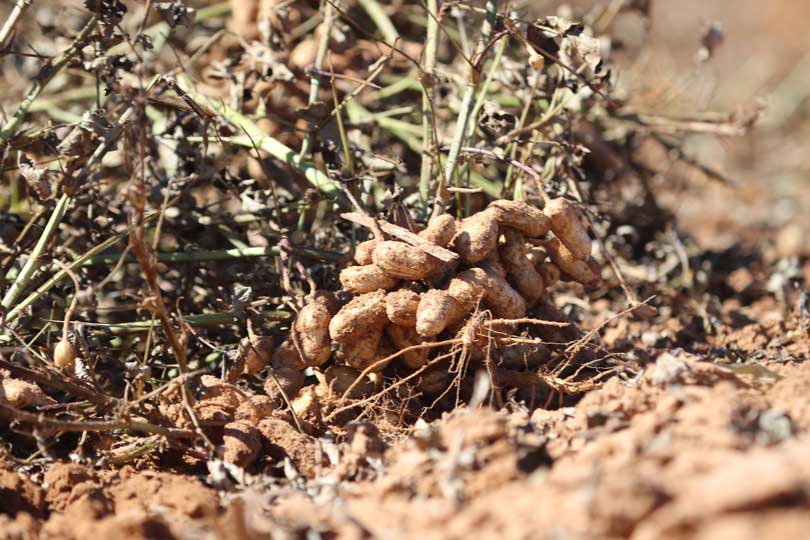By Jennifer Dorsett
Field Editor
A recent panel discussion hosted by Texas Peanut Producers (TPP) featured five peanut farmers from across the state, who talked about growing peanuts and the unique challenges they each face.
Otis Lee Johnson, Michael Newhouse, Jeff Roper, Ryan Warnken and Larry Don Womack discussed water, weather and equipment in the virtual panel Production, Challenges and Strategies: A Grower Perspective.
The virtual panel took place as part of the American Peanut Research and Education Society annual meeting.
“The challenges we’re facing are heat and drought,” Johnson said. “Mostly, it’s the drought and trying to manage our water the most efficient way we can.”
Declining water availability in West Texas is another major concern for peanut farmers, said Johnson, who is a TPP board member and farms in Gaines County. Reducing irrigated acreage has helped Roper in the past, but he said it’s simply not enough this year.
Some farms, like Roper’s, have not received rain since early March.
“We’re running short already,” Roper, who is TPP vice chairman and a Texas Farm Bureau member, said. “Our wells are suffering, and it’s still early in the season. Our dryland is nonexistent. It’s dry dirt.”
Like so many area cotton farmers, TPP board member and Hall-Donley County Farm Bureau member Newhouse said winds this year have been especially savage.
Newhouse, who grows peanuts as well as cotton, wheat, milo, haygrazer and also runs cattle, noted area forecasters have said this is likely to be the windiest year ever on record.
In May, high winds and unseasonably cold temperatures devastated his peanut crop, leading to what he expects will be poor yields.
“It got down to 34 degrees. We had three or four consecutive days with winds 30-35 miles per hour. Then, it turned around and came from the northeast and annihilated some of our peanut fields,” Newhouse said. “It’s finally toned down. It’s blowing about 15-30 miles per hour, and we’ve had a little bit of rain. Everything is starting to come around.”
In Central Texas, the weather has treated Womack, TPP board member and Comanche County Farm Bureau member, better. He’s been more fortunate in receiving timely rains.
“We’ve had two inch-and-a-half showers in the last two weeks. We’ve got dryland peanuts and even irrigated peanuts lapping on no irrigation at all,” Womack said. “We’ll start irrigation next week, but so far, it’s been good.”
But farming in Comanche County doesn’t come without its own set of challenges, he added.
“We have an influx of people. Land prices and rent—$100 an acre for dryland pasture—are up,” he said. “And now we’ve got people who want to get out of the city because of COVID.”
Keeping aging equipment functioning is another major challenge faced by Warnken, who farms in Atascosa County in South Texas. New equipment is expensive, so maintaining what he has is imperative to keeping his operation going.
“If it’s not the planter, the sprayer, it’s one thing to the other with a new challenge popping up daily. It’s a matter of time management, being able to get what you need when you need it to get things back and running and keeping things from progressively getting worse,” he said. “We try not to get behind. It’s just one day at a time, one problem at a time.”
Each challenge is unique, but Johnson said all farmers, including peanut farmers, are working hard to bring food and fiber to Americans and others around the globe, no matter the circumstances.
“The most we can do is manage our resources as best as we can, deciding what we can water and what’s going to make the best crop and most money this year,” Johnson said. “We’re just doing the best we can to manage our resources and market our crop.”

